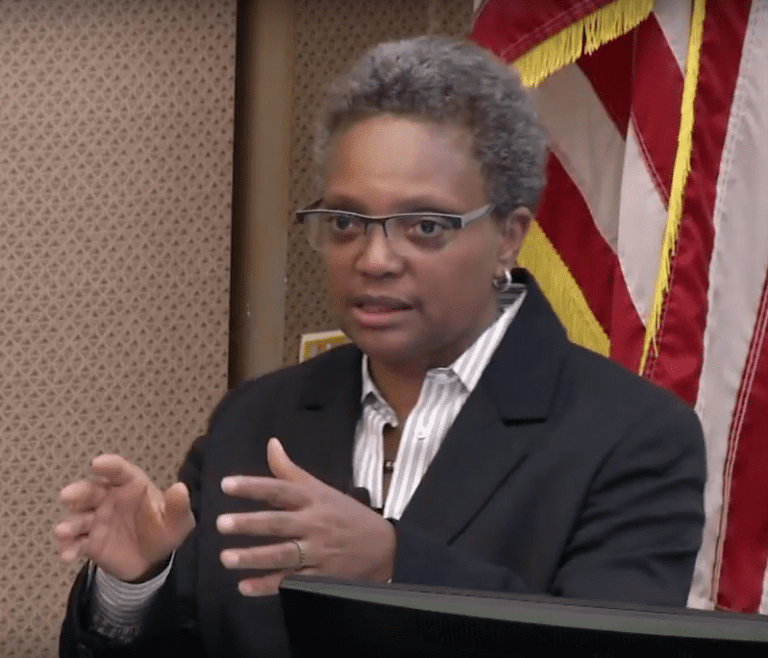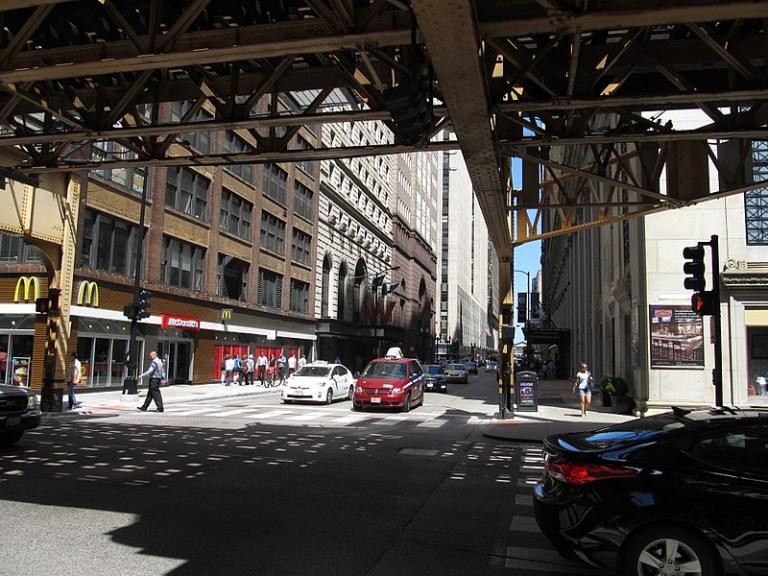![https://commons.wikimedia.org/wiki/File%3ACrimeScene.jpg; By Supaflyrobby (Own work) [CC BY-SA 4.0 (http://creativecommons.org/licenses/by-sa/4.0)], via Wikimedia Commons](https://wp-media.patheos.com/blogs/sites/533/2016/08/CrimeScene.jpg)
That’s what Bill Daley suggests in an opinion piece in the Tribune last Thursday.
First, Illinois must require mandatory prison time for illegally carrying a gun in the state. People lawfully owning licensed firearms need not worry. The General Assembly has been studying and preparing to change gun laws while people keep dying. Enough! Act!
In 2006, New York increased its mandatory penalty for carrying a loaded illegal gun to 3 1/2 years in prison. Many factors affect violence, but one fact is stark: New York City, with a much larger population, had fewer than half as many homicides last year (334) as Chicago did.
Gun laws can and must be justly enforced. NFL standout Plaxico Burress spent nearly two years in prison for carrying an unlicensed handgun (with which he accidentally shot himself in a New York nightclub). He rightly was treated the same as any nonfamous, nonwealthy person.
Second, we must give police wider leeway to stop and search suspects for illegal guns. Many people wrongly believe a federal judge in New York City ruled that stop-and-frisk policies are unconstitutional. In fact, the judge specifically said such tactics can be legal if they don’t amount to racial profiling.
A study of New York City’s stop-and-frisk policy, published last year in a Columbia Public Law Research Paper, concluded that targeted police stops “based on probable cause or (indications) of actual crime” were associated with “significant crime reductions.”
Whether intentionally placed or coincidentally, on the facing page was a letter to the editor by Rev. Dave Kelly of the Precious Blood Ministry of Reconciliation, a community outreach of a Catholic religious order, the Missionaries of the Precious Blood. Here’s his take:
If the state enacts longer mandatory prison sentences, here’s a prediction you can take to the bank: Criminals will not be deterred by the possibility of longer prison sentences, if they even are aware of the penalties. More young black and brown people — some carrying guns for their own protection — will be packed into prisons. And most will become even more dangerous criminals when returned to the streets later in life.
On the same day, an article appeared in The Atlantic, Rethinking Mass Incarceration in America. It’s a TL;DR piece, but the gist of it is that everyone thinks that prosecution for drug offenses is driving the high incarceration numbers, but that’s really only a small piece. The bigger issue is that, to a far greater degree than other Western countries, we incarcerate rather than place offenders on a rehabilitation-type track, and we give much longer sentences than is customary for the same offence elsewhere. This is coming out of a new book, Locked In, by John Pfaff; the National Review also provides a summary of what seems like a very interesting book that’s on hold at the library.
The question is this:
Would a stop-and-frisk policy be an effective deterrent of gun crimes?
One of the causes of the high murder rate in a city like Chicago is that the murder clearance rate is so low — only 30% according to a September 2016 Tribune article. Presumably — though the article doesn’t spell this out — certain types of homocides are more likely to be solved than others. Which means that, even if penalties for murder, or attempted murder or other gun-violence crimes, are sky-high, there won’t be much of a deterrent effect if the young men doing the killing don’t think there’s much risk of actually going to jail.
Obviously, the problem of finding the perpetrator is not an issue with an illegal possession that was identified in a stop-and-frisk. Presuming that the officer does everything by-the-book so that the perpetrator can’t complain that it was an illegal search and seizure, it should be an easy case, right?
But would the police be able to implement stop-and-frisk consistently enough, and with regular enough patrols, that would-be illegal gun possessors would feel that they run enough of a risk of being caught, to change their behavior?
And, if so, would that have an impact on gun crimes? It seems to me that this would only be effective if shootings and deaths were crimes of impulse, so that would-be killers and shooters changing their practice of carrying guns, due to stop-and-frisk, and deciding to keep their guns at home, would mean less impulse. But if these shootings are planned in advance, then it’s less likely that stop-and-frisk would truly make a dent. It might reduce day-to-day carrying, but won’t prevent the future felon from taking a gun along when their very intent is to commit a crime — and just staying out of sight of a patrol, and avoiding locations where the police are known to patrol.
Compare this to drunk driving. There the crime of drunk driving is directly related to the injury of car accidents. Enforce drunk driving diligently enough, and you cut down on the deaths and injuries due to accidents caused by impaired drivers. (Though the effectiveness of the ever-broadening definition of “impaired” driving is another question.) But what if drunk driving carried massive penalties, but enforcement only ever occurred on highways, and yet the majority of drunk driving happened on city streets?
I’m not an expert at gun violence, or crime in general, but it does seem that, in general, the prospect of imprisonment is not working as effectively as you’d think it should be as a deterrent, whether it’s because criminals judge that their chances of getting caught are slim, or that prison isn’t perceived of as that bad an outcome.
Readers, thoughts?
Image: https://commons.wikimedia.org/wiki/File%3ACrimeScene.jpg; By Supaflyrobby (Own work) [CC BY-SA 4.0 (http://creativecommons.org/licenses/by-sa/4.0)], via Wikimedia Commons











